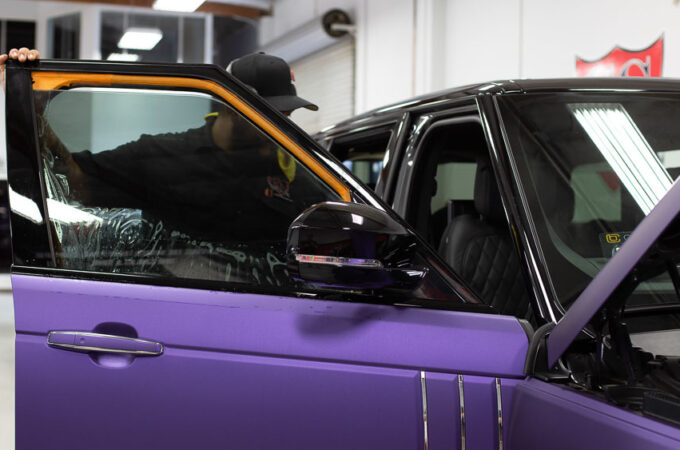What You Need to Know About Car Window Tinting
Using window tinting in your car helps protect you from harmful UV rays that can cause skin cancer. It also keeps your skin healthy. However, some states restrict the types and shades of tinting you can use. Car window tinting helps block harmful UV rays and keeps your skin healthy.

Window tinting is a great way to improve your vehicle’s appearance and performance while reducing health risks. The sun’s harmful UV rays can cause many health problems, including sunburn, skin cancer, and eye disorders. Car window tinting also reduces glare. Glare can make driving difficult and distracting. It can also cause a headache. Many car owners also suffer from chronic daily eye strain.
Window tinting can also prevent glass from entering the car. Glass shattering can be extremely dangerous, especially in a collision. Glass can break into thousands of tiny pieces, which can cause injury. With window tinting, it’s easy to keep shards of glass from entering the vehicle. It also prevents sharp edges from damaging the interior. Preparation work for window tint installation. Depending on the vehicle and skill level, preparation work for window tint installation may take anywhere from two to four hours. If you have access to a computer plotter, it can speed up the process.
Whether you are installing window tint yourself or hiring a professional, it is important to have the right tools. For instance, a heat gun can be used to smooth the film. Likewise, a razor blade can be used to clean off debris from the glass. The best way to prepare for window tint installation is to clean the outside of the vehicle. This will prevent any air contaminants from getting under the film. If the glass is particularly dirty, you can try using a commercial window cleaner. Once you have cleaned the glass, the next step is to prepare the film for installation. You can use a pre-mixed soapy water solution or make your own.
Choosing the right type of window tint can greatly affect the performance and aesthetics of your windows. Whether you are looking to enhance the appearance of your car or home, or you are looking for a way to block the UV rays from the sun, you will find that there are several different types of window tints to choose from.
The first type of window tint is a dyed film. This type is generally cheaper and more practical than other types of window tints. It comes with a polyester top coat that protects the window from scratches and is also fading-resistant. However, it doesn’t provide the best heat reduction.
The second type of window tint is a metalized film. It comes with metallic particles in it that help to reduce the penetration of heat into your vehicle or home. These materials include copper, nickel, and aluminum. They help to reduce the heat that comes into your car or home and can also help to increase the life of your window. Choosing the right window tint can be a hassle. Some states have rules that prohibit or restrict the tint you choose. Fortunately, some states are more lenient on the subject than others. Shades of tinting can be restricted in some states. It’s wise to check with your local law enforcement before you hit the road.
The best way to determine whether or not you’re allowed to tint your windows is to contact your local authorities. If your local police department hasn’t told you, you might want to check out your local State or County government website for more information. Those laws are also updated frequently, so it’s a good idea to be on the ball. While many states restrict window tinting in the name of public safety, it’s still a good idea to check local laws before you hit the road.
Depending on the tint film used, window tinting warranties can last from five years to a lifetime. Warranties vary greatly between manufacturers, but most cover adhesion, solar reflective properties, and discoloration. There are also limited-duration warranties for thermal shock fracture. The standard warranty voids after a certain number of miles or years. In addition to the manufacturer’s limitations, state laws can also affect warranty validity. Some states restrict the tint levels and types of tint. The laws vary by state, and the retail price of tinted windows may be affected.
For commercial clients, window tinting companies provide 5- to 15-year warranties. Some offer extended warranties from third parties. This allows customers to get better terms than the manufacturer’s warranty. Window tinting companies also make sure that tints are safe. They use quality films from reputable manufacturers.

